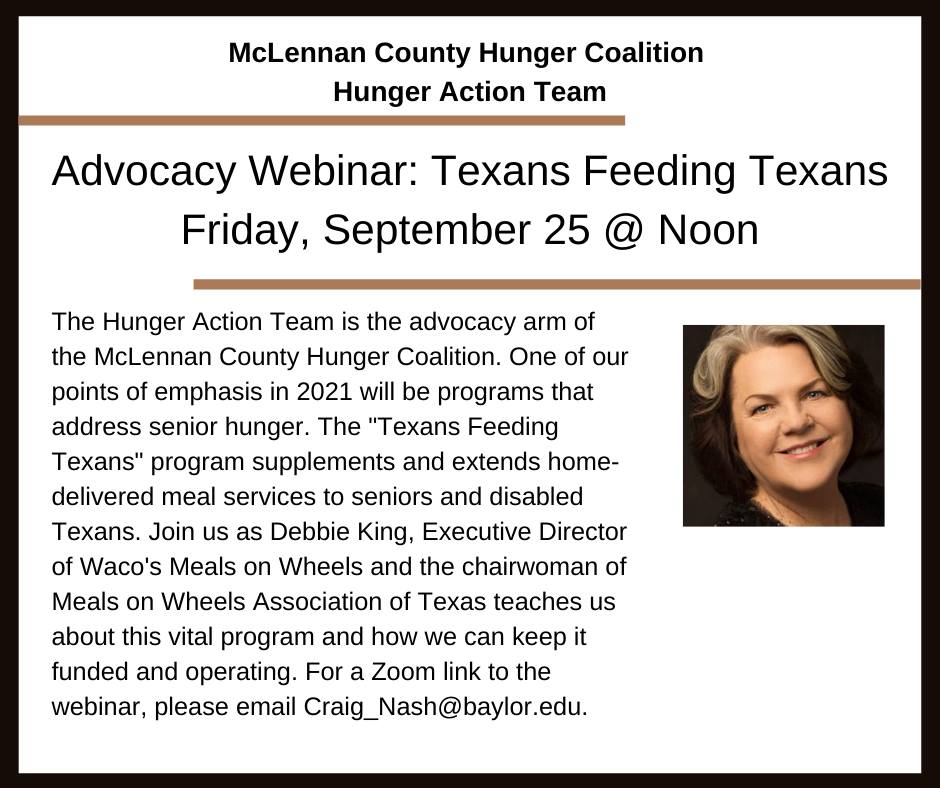Advocating for those who experience food insecurity: Distinguishing the Political from the Partisan
By Craig Nash
When I have an opportunity to speak about my work in the areas of poverty and hunger, I often like to deadpan this observation in a way that facetiously presumes the ignorance of my listeners: “I’m not sure if you are aware of this, but political discourse in our country is especially heated these days.” Usually this prompts laughter. Sometimes I pull off the timing of the humor so well that people stare at me and wonder how I could be so dim to think that anyone doesn’t know that. Not once has anyone received the statement as a new fact that they’ve never given any consideration to.
We can debate whether the current intensity of political discourse is in unprecedented territory. I tend to think it is, until I remember there was a period in our history when we solved disputes with duels. What I don’t think is disputed, and that these heightened emotional times testify to, is that politics – fleshed out through public policy – matter. Decisions made by elected officials and civil servants affect our lives and the lives of our neighbors. This is why our heart rate begins to elevate when we sense an otherwise pleasant conversation is about to turn political.
But there is something unique about these times, and maybe naming it can be instructive and helpful. We have conflated political discourse with partisan discourse. The distinction can seem trivial, but it isn’t. Politics is about how a society chooses to be governed. Partisanship is about the political “teams” we have chosen along the way. The two are not the same. And yet in a system that favors only two viable political parties, it may have always been inevitable that we would tangle one up with the other. I believe the health of our democracy, and the survival of the most vulnerable among us, is dependent on us disentangling them.
There are policies on the federal, state, and local levels that help guide the food systems in our country and ensure that everyone has access to enough healthy nutrition to thrive. We have often had partisan differences of opinion regarding how (and whether) these policies should operate. But politically, there is a long history of putting partisanship aside after an election and navigating and negotiating ways forward, especially with regards to issues of hunger and nutrition. The Hunger Action Team, the advocacy arm of the McLennan County Hunger Coalition, is committed to educating and advocating for those in our community who experience food insecurity, but whose voices are often not heard. Doing so requires setting aside the easy work of partisanship and picking up the more difficult, yet effective, work of policy engagement.
This fall we will be hosting three training webinars for anyone wanting to join us in this work. On Friday, September 25th at noon we will hear from Debbie King, the Executive Director of Waco Meals on Wheels, about Texans Feeding Texans, which was established to supplement home delivery meal programs to seniors and disabled adults. Later in the fall we will learn about programs that benefit local farmers and expand the ability of low-income families to purchase fresh produce. Then, armed with this information, in 2021 we will begin engaging with policymakers who are responsible for these initiatives and will advocate for those in our community.
If you are interested in being a part of this group, please email [email protected].


Craig Nash is regional manager for child hunger outreach at Baylor’s Texas Hunger Initiative. He enjoys talking and writing about Waco, country music, and faith. He blogs at 17dutton.com.
The Act Locally Waco blog publishes posts with a connection to these aspirations for Waco. If you are interested in writing for the Act Locally Waco Blog, please email [email protected] for more information.
